Loneliness Annual Report January 2021
Published 22 January 2021

Ministerial foreword
The past year has shone a light on the impact of loneliness. The measures to control the virus have had a devastating effect on our collective mental health and wellbeing. Their particular cruelty has been to deprive us of the very thing that makes us human and gives meaning to our lives - our physical connection with other people. We have missed the everyday social interactions that add colour to our days, whether it’s sharing food around a table, or meeting friends.
But during our collective struggle, we have seen extraordinary examples of community spirit across the country. Hundreds of thousands of people signed up to become NHS Volunteer Responders, with some providing telephone support to individuals during self-isolation, while local community groups emerged across the country to deliver food and medicine to isolated neighbours. Even as we closed our doors to keep each other safe, we continued to reach out, connect and support one another.
This government wants to build on that inspiring work, and use it to tackle loneliness for everyone in society. In April 2020, at the start of the national lockdown, we launched a comprehensive plan to tackle loneliness, including:
- categorising loneliness as a priority of the £750 million charity funding package
- refreshing of our government campaign ‘Let’s Talk Loneliness’
- updating guidance on how to support yourself and others
- bringing together a new Tackling Loneliness Network made up of private, public and charity sector organisations who want to make a difference
- announcing a new £5 million fund, with nine national charities using this funding to adapt or extend critical work. We awarded a £2 million extension of this fund in December 2020
COVID-19 has meant making some changes to the programme of work that we expected to deliver in 2020, as set out in our last Annual Report. This report sets out our work on COVID-19 over the past year and our plans for the future. We’ve kept it concise to make the report accessible, but we remain as committed as ever to tackling loneliness for all in society.
We will continue to focus our work around our three objectives:
-
Reducing stigma by building the national conversation on loneliness, so that people feel able to talk about loneliness and reach out for help.
-
Drive a lasting shift so that relationships and loneliness are considered in policy-making and delivery by organisations across society, supporting and amplifying the impact of organisations that are connecting people.
-
Playing our part in improving the evidence base on loneliness, making a compelling case for action, and ensuring everyone has the information they need to make informed decisions through challenging times.
It’s an ambitious task and we cannot do this alone. So our message is simple: will you join us in building a more connected society where no one needs to feel lonely?
Rt Hon Oliver Dowden MP
Secretary of State for Digital, Culture, Media and Sport
Baroness Diana Barran
Minister for Civil Society
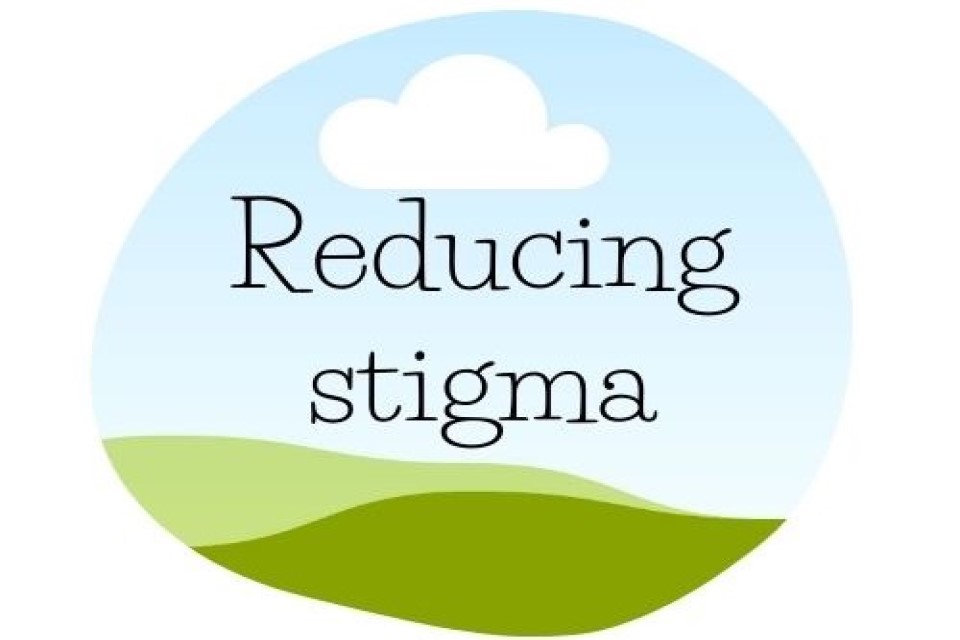
Reducing stigma
Objective One: We will reduce stigma by building the national conversation on loneliness, so that people feel able to talk about loneliness and reach out for help.
Feeling lonely is something we can all relate to, but admitting we feel lonely can be much harder. Our campaign, ‘Let’s Talk Loneliness’ shares practical tips, sources of further support, and case studies to encourage people to reach out and seek support.
Highlights from Let’s Talk Loneliness:
We updated our advice and created new content this year, working with partners such as ITV, BT, UKIE and the Royal Mail. Our toolkit supporting organisations to tackle loneliness has been downloaded over 1000 times since our campaign launched in June 2019.
During Loneliness Awareness Week in June 2020, we shared our top tips to tackle loneliness through regional and national news and across social media. We encouraged people to write letters, with a Let’s Talk Loneliness postmark applied to stamped mail delivered during the week thanks to a partnership with the Royal Mail. The screen at Piccadilly Circus in London shared our campaign video and the BT Tower displayed #LetsTalkLoneliness throughout the week.
Over the winter period, we centered the campaign around our Loneliness Winter Calendar, which brought together practical advice and inspiring stories, as well as linking to support. #LetsTalkLoneliness generated 12 million impressions throughout December, with partners such as ASDA, Ukie, Alzheimer’s Society, Royal Mail and others helping to spread the message.
What we will do next:
This government has committed to reducing stigma, working with partners across government and beyond. We will continue to signpost support, share stories and provide practical advice to people who are feeling lonely and those looking to help others through our Let’s Talk Loneliness campaign.
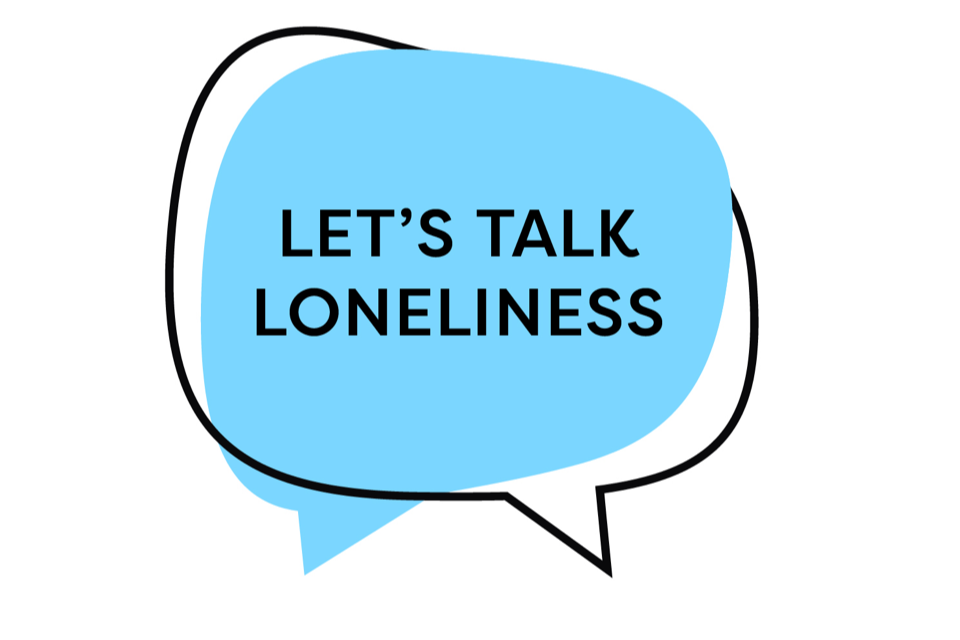
To get involved:
- Get in touch if your organisation would like to partner with us on our campaign - [email protected]
- Download the partner toolkit from our website and use it to help us spread the word through social media.
- Show your support using #LetsTalkLoneliness on social media.
- Put our practical top tips into action, including talking openly about your feelings with those around you.
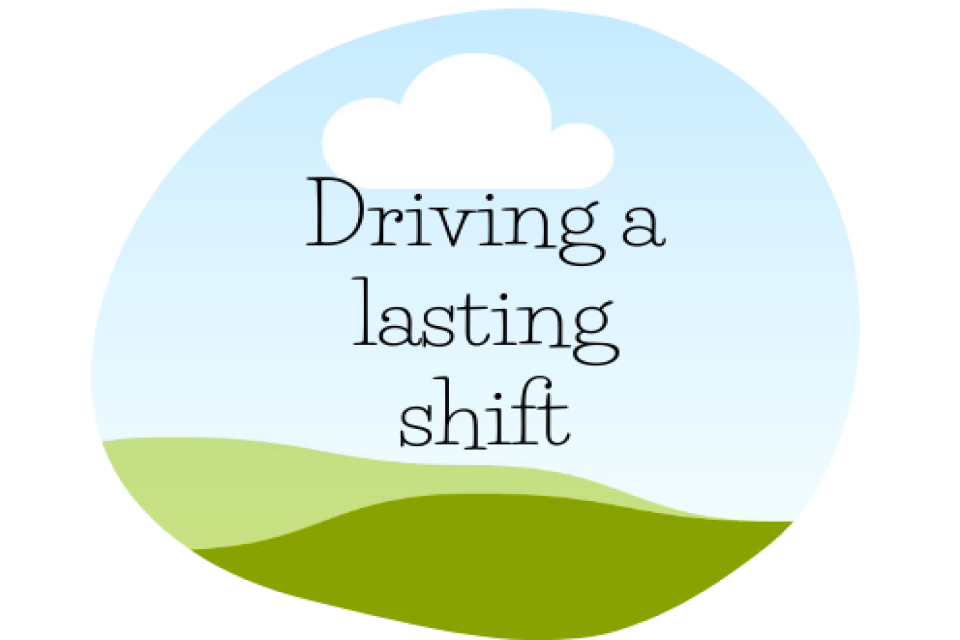
Driving a lasting shift
Objective Two: We will drive a lasting shift so that relationships and loneliness are considered in policy-making and delivery by organisations across society, supporting and amplifying the impact of organisations that are connecting people.
We will continue to work across sectors and government to take joined up action on loneliness.
Tackling Loneliness Network
Businesses, charities and public sector organisations also stepped up; we now have over 70 organisations involved in our Tackling Loneliness Network.
The four priority areas they are looking into are:
-
Youth loneliness
-
Loneliness in older people
-
Local and place-based approaches
-
Digital inclusion
Funding
We have awarded £31.3 million of funding to charities tackling loneliness during COVID-19 through the government’s £750 million charity funding package. This includes 1157 funds awarded to small or medium sized charities supporting people who experience loneliness and social isolation, with nine national charities supported through the £5 million COVID-19 Loneliness Fund. We announced an additional £7.5 million to tackle loneliness during winter, providing immediate and targeted relief to those most at risk.
Together with the National Lottery Community Fund, we launched the £4 million Local Connections Fund in December 2020, supporting charities and community groups with grants of up to £2500 each. The first round of applications will close on 26 January 2021. An additional round of funding will open in summer 2021.
Social Prescribing
During COVID-19, social prescribing link workers provided welfare checks and practical support to the most isolated. NHS England and Improvement supported a time-limited rapid recruitment programme and enhanced training and development opportunities to support link workers adapt to new ways of working due to COVID-19.The National Academy for Social Prescribing (NASP) was awarded £5 million in funding to support a range of local community activities.
What we will do next
The Tackling Loneliness Network will publish a report later this year, setting out commitments and recommendations on the four themes it is exploring. We’ll build on this engagement by launching a new Tackling Loneliness Hub, an online portal where organisations can easily share insights and ideas about loneliness, best practice approaches and connect with others to take action in partnership.
In our cross-government work, the Department for Transport will lead a £5.9 million cross-government project to work with national and local organisations in sharing best practice and trialling innovative transport-related schemes to reduce loneliness. Looking beyond this winter, a cross-government group of ministers has been established to consider and respond to the longer-term impacts of the pandemic on mental health and wellbeing. Loneliness will be considered as part of this work.
The National Academy for Social Prescribing is also facilitating the Thriving Communities Programme, which will create 7 regional hubs led by local partners, helping community groups and organisations to increase support for communities most impacted by COVID-19, working alongside social prescribing link workers.

To get involved:
- Apply for funding through our Local Connections Fund if you are eligible. More information is available on the National Lottery Community Fund website.
- Consider setting up your own local group to support those around you at a safe distance. This could be as simple as a street WhatsApp group, or virtually checking in on neighbours.
- Volunteer for a local community group — more information on where to start is available online. Information on how to volunteer safely during COVID-19 is also available online.
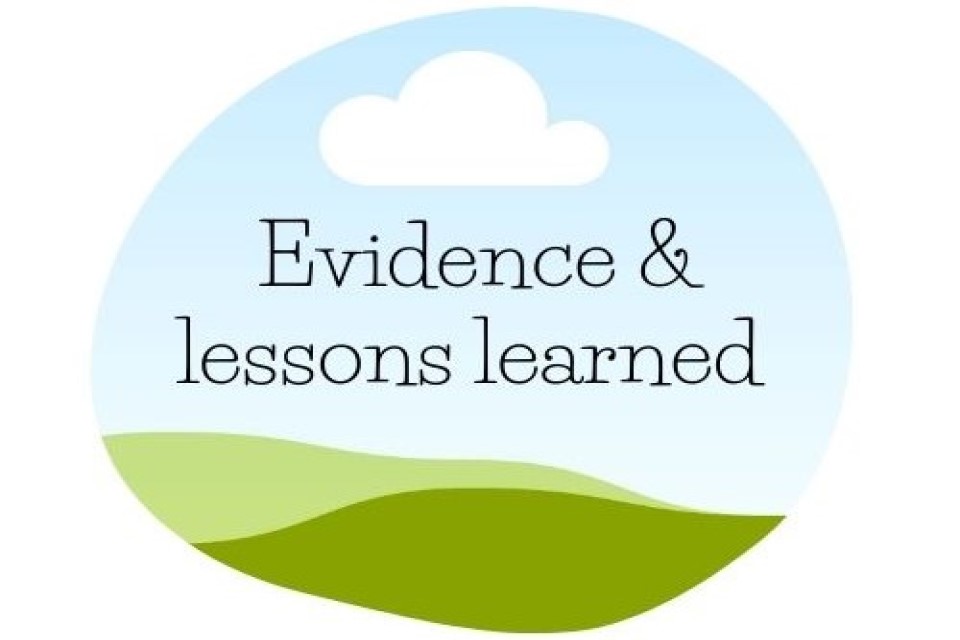
Evidence and lessons learned
Objective Three: We will play our part in improving the evidence base on loneliness, making a compelling case for action, and ensuring everyone has the information they need to make informed decisions through challenging times.
The government’s loneliness measure is now used in 10 national government surveys, providing greater insight through reports such as the latest Community Life Survey Focus on Loneliness Report.
COVID-19 research
Emerging research findings suggest that those most at risk of loneliness now are similar to those most at risk before the outbreak of COVID-19. Findings from a range of sources show this includes young adults aged 16-24; those with a disability or long-term illness; those with long-term health conditions; and those from lower income households. However, some other groups are more at risk than before, including students who were highlighted as being one of the groups more at risk of loneliness in research led by Dr Daisy Fancourt. A survey from the Office for National Statistics showed a connection between loneliness and those experiencing high levels of anxiety. Research by the Office for National Statistics on loneliness during the first month of lockdown in April 2020 is available on the ONS website.
Additional research commissioned by government
A research report from the Campaign to End Loneliness on the psychology of loneliness, funded by government, revealed how chronic loneliness affects people’s behaviour, increasing negative thoughts which makes it more difficult to engage and accept help when it is offered. Supporting people to challenge negative thinking, practise mindfulness and build a more positive attitude can help chronically lonely people to join societies and groups.
Government also commissioned a Loneliness Monetisation Report from Simetrica, which estimates the wellbeing cost of severe loneliness (equivalent to £9,537 per person per year), reflecting the clear case for investment by all in society.
What we will do next
Evaluation from the Building Connections Fund and COVID-19 Loneliness Fund will be published in 2021.
We will commission research from the Office for National Statistics and Centre for Thriving Places in early 2021 which will begin to explore variations in levels of loneliness in local areas. This will be supported by the Active Lives Survey, which will allow robust estimates of the levels of loneliness within local authority areas.
We will continue to build the evidence base, including by gathering insights and evidence through our new Tackling Loneliness Hub. We will concentrate on understanding and sharing information on the costs and impacts of loneliness and what works to tackle it, so that government, community and individual action has the greatest impact possible.
To get involved:
- Think about ways you could use this evidence, perhaps by reaching out to those most at risk or being patient with those who may have been lonely for a long time.
- As an organisation, you could evaluate how your work tackles loneliness; the What Works Centre for Wellbeing has produced guidance on how to do this.
What to do if you are feeling lonely
Feeling lonely is different for everyone
Feelings of loneliness depend on the person. Some people can enjoy being alone, but others may not. You may wonder whether someone you know is lonely if they are often on their own, but it is important not to make assumptions.
- Take the time to listen or reflect. Effective listening means giving people time to tell you what really matters to them.
- Be aware of those around you. Perhaps you haven’t seen your neighbour or friend for a few days and you may want to put a ‘thinking of you’ card through the letterbox.
- Understand that people can feel lonely at different points in life where things change. This can be moving home into a new community, becoming a new parent, starting retirement, experiencing bereavement or any other life change. These can be unsettling and lead to feelings of loneliness.
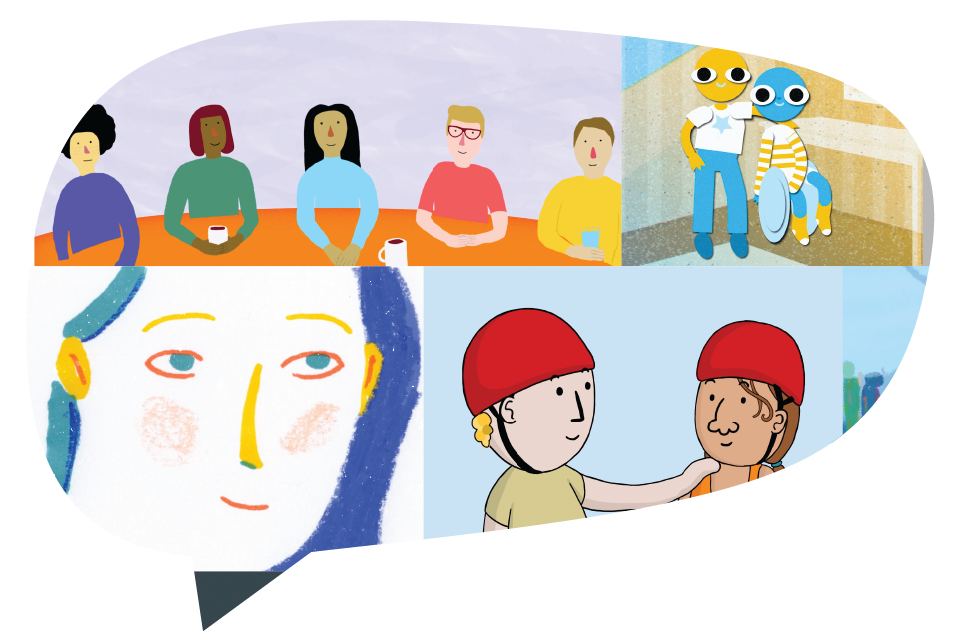
Top tips:
To support those around you, or yourself, you may want to take some of the following actions:
-
Keep in touch with those around you
-
Join an online group
-
Help someone else feel connected
Support
You may feel that you cannot put these steps into action and this could be for any reason — that is perfectly fine! Be patient, with yourself or others, as tackling loneliness and the negative emotions that can accompany it can take time. If you feel you would benefit from more support, information is available on the Let’s Talk Loneliness website.
Annex A - Case studies

Case Study One: Rural Coffee Connect - Leicestershire and Rutland
Rural Coffee Connect raises awareness and tackles loneliness across rural Leicestershire and Rutland and they share how they have been able to reach isolated people in rural areas. Leicestershire Rural Community Council, which funds Rural Coffee Connect, is one of 38 members of the Action with Communities in Rural England (ACRE) network which receives annual funding from the Department for Environment, Food and Rural Affairs.
As well as serving great coffee, we use our coffee van as a vehicle to reach and connect people with others in their community. We also deliver free ‘In Touch’ training sessions to increase awareness of loneliness and help people to take action to support those at risk. We initiated our outreach with a series of pilot visits in winter 2019.
As we moved toward Spring 2020 we were all set to ramp up our outreach and training activity in our next group of rural communities. Then CVOID-19 hit and lockdown put the brakes on our plans. It quickly became clear that work to tackle loneliness was needed more than ever and we quickly set up a telephone befriending service offering companionship and took our training online. We got our van back on the road as soon as it was safe to do so, reaching out to connect keyworkers, response volunteers and isolated residents.
Despite living in his Leicestershire village for over 30 years, Malcolm has little to no connections within his community. On his first visit to the van he explained to us that he typically doesn’t get to talk to anyone during an average day. Malcolm returned to visit the van for several weeks where we provided much needed companionship.
With his consent we connected him with volunteers from the village good neighbourhood scheme who are now checking in with him and ensuring he has opportunities to connect with new people. Malcolm expressed that he looked forward to our weekly visits, is feeling optimistic about the future and most importantly feels less lonely.
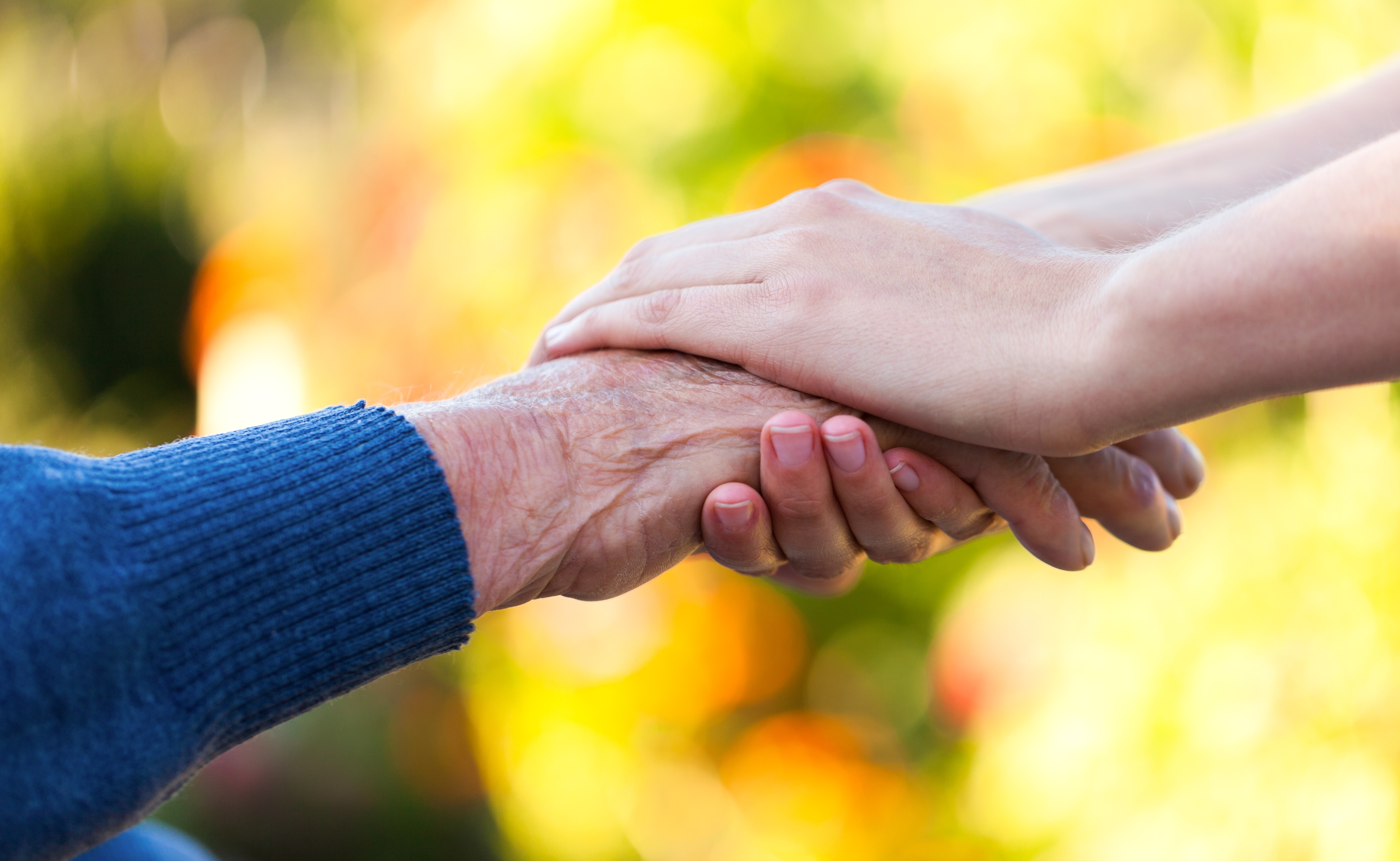
Case Study Two: Social Prescribing
The past year has seen the mobilisation of a growing workforce of social prescribing link workers within the NHS. The link workers are becoming an integral part of primary care teams across England, reflecting an understanding that mental and physical health is determined by more than just medical causes. Emotional, practical and social issues, not least loneliness and isolation, seriously affect our wellbeing.
The link workers spend time with the people referred to them by GPs and other professionals, helping to identify and address the factors that prevent people from living their life the way they want to live it. This may be helping them to live with the complexity of multiple long term conditions, or it may be the effects of loneliness. They focus on what matters to each person and help them to make connections with community activities and advice, connections which many are unable to make on their own.
Don (name changed) lives in Glossop and is in his 70s. He is a bit unsteady on his feet and has various long-term conditions including diabetes, heart failure, high blood pressure, arthritis, panic attacks and anxiety. And he was devastated when his wife died. Don told us:
I miss her everyday. We used to do everything together and when she died my confidence hit an all-time low — I felt so isolated and lonely.
Don was referred by his GP practice nurse to the social prescribing service run by The Bureau in Glossop. Here he met with Ruth, a social prescribing link worker:
It was like I knew Ruth immediately. She quickly found out what was most important to me — reconnecting with people socially — and came up with some things we could do together to help. We talked for about six months, over the phone and at my house. Having someone I could talk to honestly about how I was feeling was priceless. I am feeling happier and healthier now. I feel well in myself and finally, after the death of my wife, connected to others and part of my community.
Ruth Towner-Yates is the social prescribing link worker whose support meant so much to Don. She says:
We built a rapport from the first time we met, and over the next six months we covered a lot of ground: maximising income by securing benefit uptake; linking in with social and community groups, connecting with old friends and making new ones; improving disabled access and acquiring mobility equipment which helped to reduce the risk of falls; improving nutrition and removing barriers to him enjoying a good diet.
Now Don feels safe and well, he’s confident, assertive, happy and above all is enjoying life. And as for me, well I had the privilege of guiding him on his journey to better wellbeing and feeling secure in the knowledge that social prescribing really is a catalyst for meaningful change.
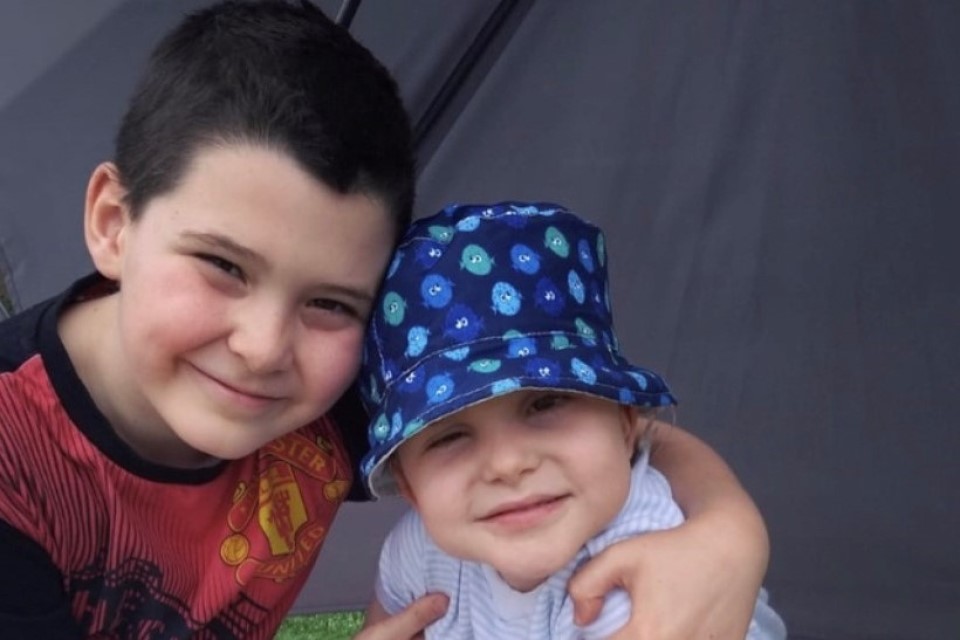
Case Study Three: Sense
Sense received £500,000 as part of the DCMS Loneliness Covid-19 Fund. This funding was used to support people with complex disabilities, including children and their families. Zach’s story below, written by his parents, shows the impact this funding has had on young carers facing loneliness.
Zachary has always been amazing with his little brother, Luca. As a mother, I couldn’t be prouder of him but I always felt a pang of guilt that I could never spend as much time with him as I do with Luca. Luca was born with a rare genetic condition (CHARGE syndrome) that affects his vision, hearing and balance. Sense and other organisations have always been there for Luca, but it always left me wondering: who was there for Zach?
The first lockdown was very challenging for all of us, but seeing Zach sad broke my heart. His football had stopped, he couldn’t see his friends or his grandparents and we had to focus a lot of our time on Luca because his support had stopped.
When Sense offered online sessions for the siblings of people with complex disabilities, we snapped up the opportunity. It sounds like I am being dramatic, but these sessions have been really life changing for us all, especially Zach. The sessions have only been going for a couple of months, but already the change has been outstanding.
Speaking to the other siblings has given him so much confidence to honestly express how he feels. It really struck us when one day he said that he felt sad he would never be able to talk or play football with his brother. This took us by surprise, but we were able to reassure him. Having Sense and the other siblings there for Zach has changed him profoundly and helped me feel less guilty. His only wish is to meet his newfound friends face-to-face when this is all over.
More stories about how people are tackling loneliness across the country are available on the Let’s Talk Loneliness website.
Annex B - Update on Loneliness Strategy commitments
More information on these commitments can be found in the Loneliness Strategy and the annual report from 2020.
| Commitment description | 2021 Update | |
|---|---|---|
| 1. | Government’s use of the ONS recommended measurement package | Data using the loneliness measure has now been published in the Active Lives Survey, Active Lives Children and Young People Survey, Tri-Service Families Continuous Attitudes Survey, the Community Life Survey and the People and Nature Survey. Data has also been collected by the National Travel Survey, Taking Part, and Taking Part Children and Young People, which is available through the UK Data Service for analysis. The English Housing Survey will be publishing data on loneliness in the summer of 2021. In October 2020, loneliness was measured in the Civil Service People Survey, which is circulated across the Civil Service to over 400,000 civil servants. |
| 2. | Continuing evidence building | Government has continued to improve the evidence base on loneliness. The Department for Culture, Media & Sport commissioned a Loneliness Monetisation Report from Simetrica, published in June 2020, which estimates the wellbeing cost of severe loneliness is equivalent to £9 537 per person per year. The first policy report on the psychology of loneliness in the UK was also published by the Campaign to End Loneliness, supported by DCMS. The loneliness strategy outlined various pilot projects and whilst some of these have concluded, the majority have been delayed due to COVID-19, so the full learnings from these pilots are yet to be seen. |
| 3. | By 2023, local health & care systems to provide Social Prescribing Connector Schemes | NHS England and Improvement has developed a comprehensive support offer to Primary Care Networks (PCNs) to recruit, train and support social prescribing link workers. During COVID-19, there has been a rapid recruitment support offer to cover recruitment and induction costs for additional link workers. The government is on track to meet the target of over 1,000 additional social prescribing link workers to be in place within PCNs by April 2021. The new National Academy for Social Prescribing (NASP) will further support local systems by funding and supporting innovative local community partnerships, improving evidence, sharing good practice and raising the profile of social prescribing link workers. During COVID-19, NASP was awarded £5 million in funding to support a range of local community activities which will help people to stay connected and maintain their health and wellbeing. |
| 4. | Publish a Common Outcomes Framework for social prescribing | This work was completed in January 2019 when NHS England published a Common Outcomes Framework for social prescribing, as part of the Social Prescribing Summary Guide. |
| 5. | Mapping all social prescribing connector schemes across England | NHS England and NHS Improvement has worked with local partners and associates to create a national database of local social prescribing connector schemes across England. Local social prescribing connector schemes continue to be supported by a national network of regional facilitators and regional learning co-ordinators. |
| 6. | Best practice guide to social prescribing | NHS England and NHS Improvement continue to develop best practice guidance for social prescribing, including refreshing the Social Prescribing Summary Guide. Further guidance has been issued in response to COVID-19. |
| 7. | Online social prescribing platform | NHS England and NHS Improvement’s free online community now has over 3,800 members who are actively involved in developing and delivering social prescribing. This enables discussion and peer support to share best practice. |
| 8. | Piloting new accredited learning programmes for social prescribing link workers | An online e-learning programme consisting of six modules is now available to all social prescribing link workers. A further three modules covering mental health, children and young people and welfare rights will be delivered by April 2021. A fortnightly webinar programme has covered topics selected by link workers, including social isolation and loneliness, children and young people, and unemployment and supporting people into work. These are recorded and accessible through the collaboration platform. Between March and December 2020 there have been approximately 10,500 attendees at these webinars. |
| 9. | Establishing regional social prescribing steering groups | NHS England has a regional social prescribing offer, which supports Integrated Care Systems, Primary Care Networks and their partners to embed social prescribing link workers in primary care. Regional facilitators continue to support local social prescribing schemes through the regional networks. In addition, regional learning coordinator roles were introduced to support the link workers with peer support networks, direct support and training on local population health priorities and services where required. |
| 10. | Assess how a variety of organisations and services currently refer individuals into social prescribing schemes | NHS England and NHS Improvement, along with the National Academy for Social Prescribing, recognise the need to continue work to create effective local partnerships between health, local authorities, and other agencies working within the voluntary and community sector. Referrals from a range of partners remain widespread and are happening on a daily basis in local areas. |
| 11. | Trial an innovative digital solution ‘Safe and Connected’ | Completed. |
| 12. | Include loneliness measure in consultation on revising the Public Health Outcomes Framework | As part of the commitment to include loneliness measures within the Public Health Outcomes Framework (PHOF), the ONS loneliness measure has been included in the Active Lives Survey. The large sample size of the Active Lives Survey will allow robust estimates of the levels of loneliness within local authority areas. Once reviewed and approved by Public Health England for inclusion in the PHOF, this will allow local authorities to benchmark rates of loneliness against others from 2021. |
| 13. | Enhance ‘Tell us Once’ initiative | The Department for Work and Pensions has committed to amend the Tell Us Once birth registration letter. The amended letter will signpost customers to organisations who can offer support for parents who may be experiencing loneliness. Delivery of this commitment has been impacted by COVID-19 and the redeployment of staff to meet service demand, but remains in progress. |
| 14. | Mobility Centre pilots | Mobility Centres in England, which support older and disabled individuals to keep driving wherever possible, have been trialling an extension to their services where they assist people who cannot or can no longer drive to access public transport (this is known as the “Hubs Programme”). Following a successful first year of the trial, the Hubs Programme has advanced into a second year of evaluation. Progress in the second year has been impacted by COVID, which means the trial is likely to conclude later than planned. Client surveys were modified to reflect travel conditions in the COVID environment, to ensure the best possible data was being collected to evaluate the outcomes from the second year. Once the second year of the programme has concluded, the Department for Transport will make a decision on full implementation at all 13 Mobility Centres in England. |
| 15. | National Trading Standards Scam Marshal scheme | Completed. |
| 16. | Open Data pilots | Trials to make available information about local services to help address loneliness took place in 2019-20. The Local Government Association and Department for Digital, Culture, Media & Sport worked with participating councils, their service delivery partners and IT suppliers to develop a data standard and means of publishing local service information as open data. This would allow for easy discovery and matching of services to people’s needs based upon their circumstances, locality and eligibility. Work to conclude the pilots was slightly delayed due to the pandemic but a project report setting out the achievements and learning is available. A collection of user stories and beneficiaries is also available on the LGA website. We plan to revisit this work in 2021. |
| 17. | Sharing Local Authorities’ good practice | Councils deliver or commission a range of services and community assets which have a significant impact on people’s wellbeing, including loneliness and social isolation, and that help to prevent escalating needs. During COVID-19, councils have worked with local partners, especially the voluntary and community sector, to help people stay connected and to tackle loneliness and social isolation. The Local Government Association (LGA) has continued to seek out and share good practice from councils about locally led approaches and interventions to support people who are experiencing, or at risk of, loneliness or social isolation. The LGA and the Association of Directors of Public Health published two advice notes to support councils on loneliness and public mental health during the pandemic, the first in May 2020 which was then updated in December 2020. |
| 18. | Employer network on tackling loneliness | The work of the Employer Leadership Group has now been taken over by the Tackling Loneliness Network, with members of the group invited to join the new network. A subgroup of the network, led by the Campaign to End Loneliness, will update and publish the good practice guide by end-March 2021. |
| 19. | Capture business good practice in communities | The work of the Employer Leadership Group has now been taken over by the Tackling Loneliness Network, with members of the group invited to join the new network. A subgroup of the network, led by the Campaign to End Loneliness, will update and publish the good practice guide by end-March 2021. |
| 20. | Sharing good practice from Jobcentres and providing training | This has moved from the project into live running. All Jobcentre staff will now routinely have mental health training as part of their core learning. |
| 21. | Improve knowledge sharing among social workers | The ‘Evidence Scope: Loneliness and Social Work’ report was published in February 2020. The Department for Health and Social Care will continue to work to support social workers to be proactive in assessing loneliness and its impacts, and supporting people experiencing loneliness. |
| 22. | Community Spaces Funding | All £800,000 of government funding has now been allocated through the Co-op Foundation’s Space to Connect Fund in order to further establish existing community spaces and to create the opportunity for new spaces to be founded. Evaluation from this fund will assess how these spaces are being used and what impact they are having within the community, but has been delayed for publication until May 2021 due to COVID-19. |
| 23. | Guidance for schools on use of their premises | Postponed due to COVID-19. |
| 24. | Collect data on schools using their premises | Postponed due to COVID-19. |
| 25. | Support use of underused railway property | The Community Rail Network continues to run online training sessions on volunteering and social inclusion, presenting models for how community rail can engage wider groups in station-based volunteering in order to benefit diverse groups and overcome exclusion. The Community Rail Network is the representative body which provides support, advice and information to the community rail sector, particularly through membership services and events. Government recognises the important role that the Community Rail Network plays in helping to deliver strategic outcomes and is a key funder of the organisation. |
| 26. | Good practice on using Department for Work and Pensions space | COVID-19 restrictions have meant the Department for Work and Pensions has adapted the way it is delivering services. Jobcentres have remained open to help customers who need face-to-face support, and whom we cannot help in any other way. Other than that, our support to customers will be on the phone and online. This will be reviewed in line with government advice. |
| 27. | Businesses using their space for communities | The work of the Employer Leadership Group has now been taken over by the Tackling Loneliness Network, with members of the group invited to join the new network. A subgroup of the network, led by the Campaign to End Loneliness, will update and publish the good practice guide by end-March 2021. |
| 28. | ACRE targeting loneliness using Department for Environment, Food and Rural Affairs funding | The Action with Communities in Rural England (ACRE) network consists of 38 county based members across England and receives annual funding from the Department for Environment, Food and Rural Affairs (DEFRA). Loneliness and isolation in rural areas are included within the agreed ACRE strategic priority areas for which DEFRA funding may be used. Network members identified loneliness and isolation as among the top five issues being addressed through their work with communities. Projects included virtual coffee mornings, training sessions on how to use Zoom, phone-based befriending and virtual art projects. |
| 29. | Rural roundtable | DEFRA will continue to hold roundtables to develop work on rural loneliness. |
| 30. | Funding for Community Transport drivers’ qualifications | MiDAS (Minibus Driver Awareness Scheme) is administered by the Community Transport Association (CTA) and is designed to enhance minibus driving standards and promote the safer operation of minibuses. In order for MiDAS to become an official qualification for Community Transport drivers to solely rely upon for their operations, the Department for Transport has provided initial funding of £38,000, which will be used for the business and technical development stages of the project. This involves research into the programme and market testing the materials with stakeholders and launching the programme over 6 months. The government believes that community transport operators provide vital services that both encourage growth and reduce isolation by linking people with their communities, helping take them to shops, work, school and medical appointments. |
| 31. | Partnerships with transport providers | The Department for Transport will continue to work in partnership with the transport sector to highlight the issue of loneliness and support the sector to take action. Prior to COVID-19, bus companies were trialling a range of initiatives to support social interactions on local transport. As part of reconnecting following the end of the current crisis, the Department for Transport will seek to build upon existing relationships with stakeholders and establish new partnerships. |
| 32. | The Future of Transport Rural Strategy | In 2019, the Department for Transport published the ‘Future of Mobility: Urban Strategy’, setting our approach to maximising the benefits and managing the risks of new technology in urban areas. The Department for Transport now wants to explore the challenges and opportunities for rural areas. Transport innovation has the potential to revolutionise travel within our towns, villages and more remote areas - making it easier for people to access jobs, education or healthcare. It could also provide a boost to rural communities, where people without cars often miss out on opportunities and must also ensure that new transport innovations are inclusive and practical for all who live in our villages, towns and more isolated locations. A ‘Call for Evidence’ was launched on 24 November 2020, with a view to publishing a Future of Transport Rural Strategy in 2021. |
| 33. | Research into the impact of community-led housing and co-housing solutions | The Ministry of Housing, Communities and Local Government is conducting research on the impact of community-led housing and co-housing on reducing loneliness across all ages, commissioning the London School of Economics to lead this research. Initial findings, outlined in an interim report from July 2020, give strong support for the thesis that community-led housing is effective in reducing loneliness for those who take part. This includes both residents of the housing, and those who are involved in their wider community. The final report was due to be published in June 2020, but given delays due to COVID-19, will be launched later this year instead. |
| 34. | Run a series of industry events, conferences and seminars and publish case studies and evidence | Completed. The Social Housing White Paper ‘The Charter for Social Housing Residents’ referenced the government’s work on tackling loneliness, recognising the importance of engagement with neighbours and the wider community. The Ministry of Housing, Communities and Local Government will ensure that social housing residents feel empowered in their local communities. |
| 35. | Loneliness as a measure of design quality and community cohesion is included in garden communities assessment and support. | The Ministry of Housing, Communities and Local Government and Homes England continue to work with the Garden Communities whose bids were successful, and support them in implementing their visions to build vibrant, mixed-use communities where people can live, work, and play for generations to come. Garden Communities are newly built communities with a clear identity and attractive environment that provide new housing, infrastructure, jobs and services in sustainable settlements. As well as building new homes, the communities develop job opportunities, attractive green spaces and public areas, transport and community infrastructure and a plan for the long-term stewardship of community assets. |
| 36. | Digital Inclusion Innovation Fund | The Department for Digital, Culture, Media and Sport launched a £400,000 Digital Inclusion Innovation Fund in September 2018 to help older and disabled people acquire digital skills. The aim of the fund was to help ensure that ‘what works’ on digital inclusion is identified, replicated and scaled. Three grantees received funding. The Council for Voluntary Service Uttlesford was awarded funding to design ‘smart homes’, where older homeowners were trained by digital buddies on how to use the technology in their homes. By March 2020 the project had eight operational Living Smart Homes set up, 1094 learners engaged and 64 digital buddies onboarded. The Down’s Syndrome Association designed an app to promote good health and wellbeing, with 1273 downloads and the Weldmar Hospice also developed an app to support end of life care patients who are living in their own homes or care homes. |
| 37. | White paper on internet safety | The Department for Digital, Culture, Media & Sport have now published the full government response to the Online Harms White Paper consultation, which sets out the new expectations on companies to keep their users safe online. This was accompanied by interim codes of practice on terrorism and child sexual exploitation and abuse content and activity, published by the Home Office, and the government’s report on transparency reporting. It also confirmed the decision to appoint Ofcom as the regulator, and will give them a range of enforcement powers - including substantial fines. The full government response will be followed by legislation, which the Department for Digital, Culture, Media & Sport are working on at pace, and will be ready later this year. |
| 38. | Roundtable with technology companies | Completed. |
| 39. | National Apprenticeship Service | The Apprenticeships division within the Department for Education has been encouraging employers to offer work placements through Traineeships and apprenticeships to young people with special educational needs or disabilities. So far, the Department has met targets to increase the proportion of apprentices with learning or developmental disabilities (LDD) by 20% by 2020 (reaching 12.6% representation by Q3 2019/20). |
| 40. | Best practice guidance on work placements | The publication, ‘Work experience that works’, has become an important reference guide for education providers and employers, encouraging them to work together to support learners with SEND. |
| 41. | Awareness Campaign | In response to COVID-19 and multiple lockdowns, the #LetsTalkLoneliness campaign was refreshed. Campaign activity throughout 2020 led to a total of 131 354 views of the Let’s Talk Loneliness website, an increase of 420% compared to 2019. During Loneliness Awareness Week in June 2020 our hashtag generated a reach of 10.4 million impressions and our website was visited 25,327 times. The campaign encouraged people to connect with games through the #PlayandTalk weekend and shared our top tips through regional and national news and across social media. The campaign was also refreshed for Winter 2020, featuring a digital advent calendar throughout December. Our hashtag generated 12.1 million impressions on social media. Highlights included a premiere of the Military Wives Choirs’ new virtual music video, a Twitch livestream around the topic of loneliness hosted by well-known gaming influencers, and an animation of Captain Tom featured on top of the BT Tower, promoting #LetsTalkLoneliness and #WalkWithTom. |
| 42. | Mental Health Campaign | The Department for Digital, Culture, Media & Sport continues to partner with Public Health England’s ‘Every Mind Matters’ campaign, with their dedicated page on loneliness profiled on the campaign’s homepage during the COVID-19 pandemic. |
| 43. | Relationships education (primary), Relationships and sex education (secondary) and health education (all phases) | The new subjects of Relationships education (primary), Relationships and sex education (secondary) and health education (all phases) are now being implemented by schools. The curriculum states that primary and secondary school children should be taught about loneliness alongside related areas, including building positive friendships and supporting mental wellbeing. The new curriculum became mandatory for all schools in England from September 2020, although those who require additional time have up to the summer term 2021 before they start teaching. Teaching modules are available at gov.uk. |
| 44. | Support for those starting higher education courses | The Department for Education’s Education Transitions Network is designed to promote preventive measures that will help minimise risks to the wellbeing of higher education students, including loneliness. Comprising more than 20 organisations from the voluntary, private and public sectors, the Network has been encouraging student halls providers and universities to make greater use of networking platforms that enable new students to meet online and start forming successful friendship groups before arriving at university. For example, leading student accommodation provider Unite Students opened up additional chat rooms in its platform in 2020 to allow students on the same floor to ‘meet’ and make friends, and this was used by 33,000 students. Fellow provider UPP meanwhile continued its successful use of Whatsapp groups and its Home@Halls App enabling freshers to network, take part in daily group events and build a supportive virtual community. |
| 45. | Flexible volunteering pilots | The Department for Digital, Culture, Media & Sport partnered with the Centre for Ageing Better on the Age-Friendly and Inclusive Volunteering Fund. This aimed to stimulate and test approaches to age-friendly, inclusive volunteering that widen participation and help sustain contributions as life circumstances change. Emerging findings show the importance of adopting flexible, informal, sociable and supportive approaches to overcome practical, structural and emotional barriers - such as lack of self-confidence and self-esteem - and take a more inclusive approach. A guide for organisations has been produced, based on these findings, and the full evaluation will be published in early 2021. ‘Growing Connections’, one of the five funded projects led by the charity Sustain, helped community gardens across London become more age-friendly and inclusive for volunteers and visitors of all ages by working with over 20 gardens to discover and share good practice. The key principles for age-friendly practice in its toolkit are: be welcoming in everything you do; create a culture of care and respect; recognise that inclusivity does not mean your garden has to be perfect; and listen and be open to feedback. In response to COVID-19, which prevented many older adults from building social connections through helping others, Ageing Better developed a practical guide, sharing some emerging insights and supporting volunteer-involving organisations to re-engage and widen participation among people over 50, during and beyond the pandemic. |
| 46. | Sport and physical activity for people over 55 | Sport England is in partnership with Carers UK, which is now undertaking a small pilot project to help carers be more active. A physical activity online hub has been developed to educate and inspire carers to be more active through a combination of inspirational stories, top tips and ideas on how to get active. It also provides a community to connect carers to one another. Through Sport England’s partnership with British Red Cross (BRC), physical activity has been embedded in the BRC’s existing Community Connectors service, with volunteers supporting lonely services users to undertake physical activity, including a walking pedometer challenge and virtual group exercise classes. BRC has also distributed activity packs with exercise sheets and resistance bands to support strengthening at home, and WhatsApp groups have been set up to encourage sharing of experiences. Between March and November 2020, 529 service users were supported in 6 localities. |
| 47. | Cultural programmes as part of social prescribing | The Thriving Communities programme will support local voluntary sector groups to increase community activities to reduce loneliness, through developing cross-sector partnerships across the arts, but also including natural environment, financial wellbeing and physical activity. This programme is facilitated by the National Academy for Social Prescribing, working with Arts Council England, Natural England, Sport England, NHS England, NHS Charities Together and the Money and Pensions Service. |
| 48. | Role that arts and culture can play in addressing loneliness | The Arts Council 10-year strategy was published on 27 January 2020. It restated its belief in the role of creativity, culture, museums and libraries in improving mental wellbeing - which includes tackling loneliness. |
| 49. | Utilise the loneliness measure across relevant projects and programmes | The Department for Digital, Culture, Media & Sport has been actively encouraging partners and funding recipients to use the ONS loneliness measure to help understand the effect of their programmes on loneliness and isolation. One example of this is through the COVID-19 Loneliness Fund evaluation, where grant recipients were supported to use the ONS loneliness measure within the evaluations of their funded programmes. |
| 50. | Masterclasses on measuring the impact of library services in reducing loneliness | Completed |
| 51. | 2018 Libraries Week to include loneliness | Completed |
| 52. | Support for care leavers | The Department for Education has now established a cross-governmental ministerial board to focus on improving support for care leavers. To directly combat loneliness and keep care leavers connected during COVID-19, care leavers were made a priority group for the £100 million government investment in the distribution of laptops and routers to disadvantaged young people. 148,000 of these devices have already been provided specifically to children with a social worker and to care leavers. The government has also given £150,000 to three care leaver charities - Become, Drive Forward and the Care Leavers Association – to enable them to provide additional support to the young people they have been supporting, with a focus on outreach. |
| 53. | Research on uniformed youth groups | Completed |
| 54. | #iwill campaign | The Department for Digital, Culture, Media & Sport has continued to work on the #iwill campaign to encourage young people to participate in social action. They are supported by over 1000 organisations in the UK and have brought in 300 #iwill young ambassadors. The campaign also involves the National Youth Social Action Survey, which has included a direct question on loneliness for the past two years. So far, over 10,000 young people have shared their perspective on youth social action through the survey. In 2019, it found that young people who say they are never lonely were more likely to feel part of their community, compared to those who were lonely often or occasionally. |
| 55. | Evaluation and learning of Building Connections Fund | The final learning report for the Building Connections Fund will be released in summer 2021. The methodology of the evaluation was substantially changed as a result of COVID-19, so the final report will contain learning from both before and during the crisis. |
| 56. | Minister for Civil Society to lead cross-Whitehall group | Baroness Barran is the Minister for Loneliness, as part of her broader portfolio working on civil society. |
| 57. | Continue ministerial group and Loneliness Action Group. | The Department for Digital, Culture, Media & Sport has paused the Ministerial Group during COVID-19, but the Minister for Civil Society continues to engage with ministers in other government departments. Bilateral meetings will continue, along with close working with other government departments. Government officials will also continue to engage with the Loneliness Action Group, convened by the British Red Cross. |
| 58. | Extended ministerial portfolios | The Minister for Loneliness will continue to engage with ministers in key government departments to work together to meet our shared objectives on tackling loneliness. |
| 59. | Single Departmental Plans | Publication of Single Departmental Plans has been delayed due to COVID-19. Close working will continue across government to influence policy-making. |
| 60. | Considering loneliness through policy making | The Tackling Loneliness team continues to influence other policy makers, having held cross-government webinars about loneliness and shared our policy toolkit across government. The team has presented webinars on loneliness at the Cabinet Office, Department for International Trade, Department for Education and the Department for Digital, Culture, Media & Sport, as well as during the Civil Service-wide Mental Health Conference. |
